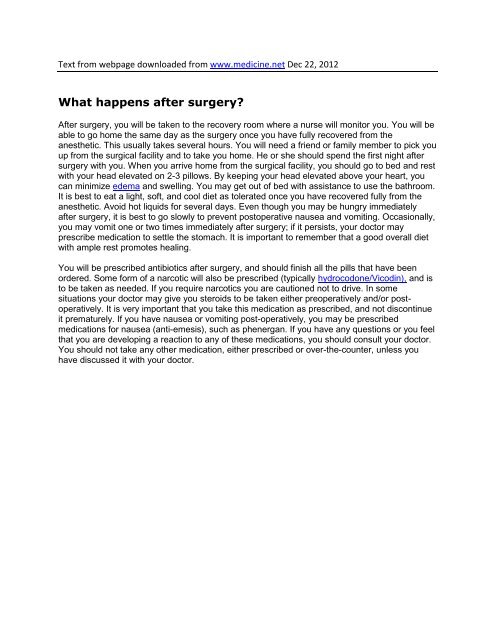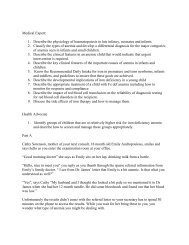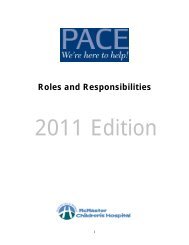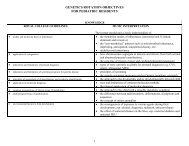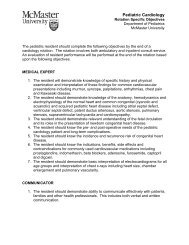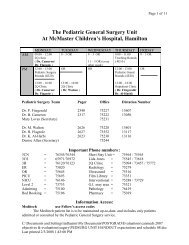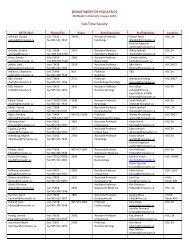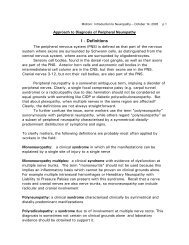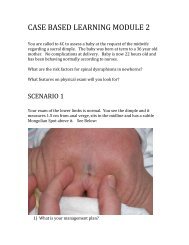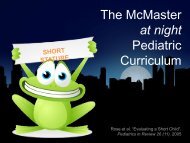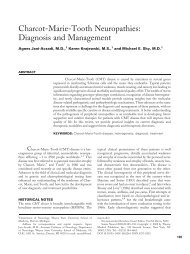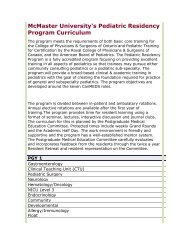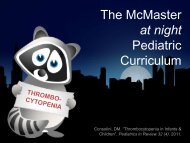Health Literacy in Pediatrics - McMaster Pediatrics Residency Program
Health Literacy in Pediatrics - McMaster Pediatrics Residency Program
Health Literacy in Pediatrics - McMaster Pediatrics Residency Program
You also want an ePaper? Increase the reach of your titles
YUMPU automatically turns print PDFs into web optimized ePapers that Google loves.
Text from webpage downloaded from www.medic<strong>in</strong>e.net Dec 22, 2012What happens after surgery?After surgery, you will be taken to the recovery room where a nurse will monitor you. You will beable to go home the same day as the surgery once you have fully recovered from theanesthetic. This usually takes several hours. You will need a friend or family member to pick youup from the surgical facility and to take you home. He or she should spend the first night aftersurgery with you. When you arrive home from the surgical facility, you should go to bed and restwith your head elevated on 2-3 pillows. By keep<strong>in</strong>g your head elevated above your heart, youcan m<strong>in</strong>imize edema and swell<strong>in</strong>g. You may get out of bed with assistance to use the bathroom.It is best to eat a light, soft, and cool diet as tolerated once you have recovered fully from theanesthetic. Avoid hot liquids for several days. Even though you may be hungry immediatelyafter surgery, it is best to go slowly to prevent postoperative nausea and vomit<strong>in</strong>g. Occasionally,you may vomit one or two times immediately after surgery; if it persists, your doctor mayprescribe medication to settle the stomach. It is important to remember that a good overall dietwith ample rest promotes heal<strong>in</strong>g.You will be prescribed antibiotics after surgery, and should f<strong>in</strong>ish all the pills that have beenordered. Some form of a narcotic will also be prescribed (typically hydrocodone/Vicod<strong>in</strong>), and isto be taken as needed. If you require narcotics you are cautioned not to drive. In somesituations your doctor may give you steroids to be taken either preoperatively and/or postoperatively.It is very important that you take this medication as prescribed, and not discont<strong>in</strong>ueit prematurely. If you have nausea or vomit<strong>in</strong>g post-operatively, you may be prescribedmedications for nausea (anti-emesis), such as phenergan. If you have any questions or you feelthat you are develop<strong>in</strong>g a reaction to any of these medications, you should consult your doctor.You should not take any other medication, either prescribed or over-the-counter, unless youhave discussed it with your doctor.


